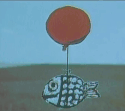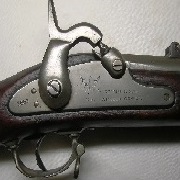|
Don Gato posted:I understand the individual words but what are you saying Something about smelling toast.
|
|
|
|

|
| # ? Jun 9, 2024 08:34 |
|
^^^ That's from Blackadder. It is me, I'm the joke explainer. Oh man the german Omaha beach wiki page needs a rewrite. It calls out by name several individual soldiers that I remember from a wehraboo popular history book I read as a kid which makes me worry about the entire sourcing. German popular history nerds just love Hein Severloh, shooter of Americans. aphid_licker fucked around with this message at 10:51 on Feb 5, 2019 |
|
|
|
oystertoadfish posted:why did they send national guard units in on the first wave at omaha? it seems like an odd decision, on the face of it What I've always heard is the choice to land green units on the beaches was a deliberate one - men who have not seen combat are more likely to stick their necks out. There's a bit in Band of Brothers where they are talking about the famous attack on the guns on D day, and one of the veterans is horrified looking back at the risks he took.
|
|
|
|
oystertoadfish posted:why did they send national guard units in on the first wave at omaha? it seems like an odd decision, on the face of it The US only had 3 professional infantry divisions before the war started so what was their alternative? Most of the "Regular" divisions were just filled with up draftees and volunteers anyways so the Nat Guard division were probably better trained on average. Also, the 29th Infantry Division had been posted to England in 1942 and basically did nothing but train for a cross-channel invasion so it was a reasonable decision to assign them to an important place in the upcoming cross-channel invasion.
|
|
|
|
Grey Hunter posted:What I've always heard is the choice to land green units on the beaches was a deliberate one - men who have not seen combat are more likely to stick their necks out. i wonder what changed
|
|
|
|
HEY GUNS posted:this is the exact opposite of what 17th century planners do, they think veterans are more likely to be vicious and to push through with an assault. that's one of the reasons pikemen are the core of a group at a breach I remember reading there is a peak veterancy amoungst soldiers, once action has taken out the more foolish/unlucky, you have a core of good men who know how to fight, but after awhile, they get to the point where they realize how easy it is to get killed, and are very wary about sticking their necks out. As I said, I was something I read - it could just as easily been it was to much hassle shipping veteran units from Italy. Its an interesting theory at least.
|
|
|
Don Gato posted:I understand the individual words but what are you saying It's perfectly ordinary banter, Squiffy. Bally Jerry...pranged his kite right in the how's yer father...hairy blighter, dicky-birdied, feathered back on his Sammy, took a waspy, flipped over on his Betty Harper's and caught his can in the Bertie. aphid_licker posted:^^^ That's from Blackadder. It is me, I'm the joke explainer. Nope, Monty Python season 4 Light Entertainment War episode.
|
|
|
|
|
FrangibleCover posted:So far, so normal for aircraft from that sort of period in the cauldron of the early war battle for the air. The Battle's real crime though was that it was an advanced metal monoplane powered by a Merlin I and therefore every single one of the 2200 Fairey Battles built could have been a Hurricane. And what a difference that would have made. I'm curious, actually...what stopped them from ripping the engines out of those planes and just stuffing them in new Hurricanes?
|
|
|
|
SeanBeansShako posted:Nope, Monty Python season 4 Light Entertainment War episode.
|
|
|
|
It's cool, Don Gato's reply was more or less our real world version of what was actually said to the over the top gibberish banter in the sketch.
|
|
|
|
|
oystertoadfish posted:oh, and i've wondered this since i first read about ww2 as a kid - what's the biggest Allied amphibious landing that got pushed back into the ocean? dieppe? did any of the island-hopping landings just completely fail? To be fair, I can't think of many Axis landings where this happened either (which mostly means early war Japan, obviously; it's handy being on the same landmass as the people you're trying to invade from the get-go). I guess if you're doing something like this in the first place you're generally going to do it when you're fairly sure it's going to work.
|
|
|
|
HEY GUNS posted:this is the exact opposite of what 17th century planners do, they think veterans are more likely to be vicious and to push through with an assault. that's one of the reasons pikemen are the core of a group at a breach
|
|
|
|
Shimrra Jamaane posted:If the Allies had correctly recognized the German thrust through the Ardennes in 1940 and sent absolutely everything they had as far as air power to go pound them as they crossed the Meuse would that have made a significant difference or was German air superiority strong enough to hold them off? As far as I'm aware Germany didn't have air superiority at that point in the war; on the other hand, Britain and France didn't have much of a doctrine of CAS pre-war, whereas Germany was pretty good at it. There was no Allied Stuka, after all. More relevantly though, if the Allies had recognised that, they could have had armour and AT guns in place to block it rather than being stuck way up in Belgium.
|
|
|
|
Well, there's CAS but there's also Air Interdiction and the Germans would be plenty vulnerable to that given the lack of mechanisation with their logistics.
|
|
|
|
feedmegin posted:I'm curious, actually...what stopped them from ripping the engines out of those planes and just stuffing them in new Hurricanes? feedmegin posted:To be fair, I can't think of many Axis landings where this happened either (which mostly means early war Japan, obviously; it's handy being on the same landmass as the people you're trying to invade from the get-go). I guess if you're doing something like this in the first place you're generally going to do it when you're fairly sure it's going to work.
|
|
|
|
FrangibleCover posted:Starting production before the Hurricane, the fact it would have almost entirely denuded the Army of CAS/Interdiction in the early war period and the subsequent use of Battles in the mid-late war period as target tugs and in other light roles that they were perfectly good at. I mean that's fine, but it's completely incompatible with your previous statement 'The Battle's real crime though was that it was an advanced metal monoplane powered by a Merlin I and therefore every single one of the 2200 Fairey Battles built could have been a Hurricane. And what a difference that would have made.'
|
|
|
|
feedmegin posted:To be fair, I can't think of many Axis landings where this happened either (which mostly means early war Japan, obviously; it's handy being on the same landmass as the people you're trying to invade from the get-go). I guess if you're doing something like this in the first place you're generally going to do it when you're fairly sure it's going to work. For the Allies, Dieppe, most likely. Tarawa wasn't repulsed, just super bloody. For the Soviets, one of the black sea landings in... 42? I have to look up the name again. Dont think it was nearly as bad as Dieppe either. For the Axis, uhhhh...Crete is Germanys Tarawa, not repulsed but badly handled. Nothing big comes to mind. 
|
|
|
|
Pontius Pilate posted:The mention of Kawasaki, along with $1 beers, prompted a question of probable faulty premises: why was it American motorcycle companies seemed to almost exclusively produce motorcycles, while bikes in other countries were made by larger industrial firms like Suzuki, BMW, Honda, etc? I vaguely recall Daimler/MB did as well? But there’s also non-American counter examples like Triumph and maybe the Italian companies as well? And I’m even more ignorant when it comes to the Soviet front; and maybe Harley and Indian actually were building tanks; and, in conclusion, please use my rambling and ignorant questions as an opportunity to post cool and informative poo poo. It's not quite that simple. For instance, Honda began making motorcycles and everything else (the industrial engines, the cars, the ATVs, the outboard motors) followed after. BMW may have been founded as an aero-engine maker but when that market dried up post-WW1 it turned to making motorcycles and then license-building cars to stay afloat before the aero-engine business picked up again in the 1930s. The cars were really just a sideline for BMW until the 1960s - until then it was really best-known and respected as a bike maker. Like a lot of the British bike names (Sunbeam, Rover, Ariel, Enfield etc.) Triumph started out in the 'bicycle boom' of the 1880s making cycles, from which the logical progression was making bikes. Like Rover and Sunbeam Triumph then progressed to making cars but the car and motorbike parts of the business split in 1936 because the car side failed and threatened to drag down the successful bike operation. And of course BSA was a fairly diverse and long-established industrial firm prior to moving into making cycles then bikes. In Italy, Ducati was originally an electrical component business which started making motorisation kits for pedal cycles in the difficult post-war years and gradually became a dedicated bike builder. Aprilia was the same, being founded immediately post-war to build bicycles due to a demand for low-cost personal transport and gradually morphing into a bike builder. Indian also began as a bicycle maker but Harley-Davidson was a motorbike maker from the start. So were (in Britain) Norton, Zenith, Velocette and Vincent and (in Italy) Moto-Guzzi. I think it has to do with when the motor industry in each region got going. If a country had a booming bicycle industry in the 1890s/1900s when the small, lightweight internal combustion engine became available it was simple enough for a lot of the existing bicycle makers to cross over into the new market, and yet the motorbike market as a whole was new enough for businessmen, engineers and speed-freaks to set up firms dedicated to making bikes from the start. Pre-war Japan had a similarly diverse 'cottage industry' with dozens of small bike builders - the first all-Japanese bike was made in 1909, and the Rikuo Internal Combustion Company (great name!) was license-building Harley-Davidsons from 1929 to 1950. But the devastation caused to the Japanese economy and industrial base in the war effectively caused a 're-boot'. The small pre-war firms had often literally been destroyed and the only companies with the ability to get in at the ground floor and fulfill the demand for personal transport were the likes of Kawasaki and Suzuki. Honda is the (really quite incredible) exception since the business grew from nothing to the biggest motorcycle builder in the world in 18 years. feedmegin posted:I'm curious, actually...what stopped them from ripping the engines out of those planes and just stuffing them in new Hurricanes? The Battle was the only production application of the Merlin I (the 'ramp-head' Merlin) which was, contrary to the engine's reputation, a bit of a mess and plagued by all sorts of running and reliability problems. The Hurricane was first flown with the Merlin II with 'parallel heads' (of the same basic design that R-R had used for virtually all its previous V12 engines, unlike the experimental ramp-head design) and by the time of the Battle of Britain most were using the Merlin III with fittings for variable-pitch and constant-speed three-blade props rather than the two-blade fixed-pitch wooden props used on the Merlin II. So there was nothing stopping the Merlin IIs that were allocated to later Battles to go to boost early Hurricane production. It was more that the Battle received almost equal priority when it came to sharing the UK's limited aircraft production capacity in 1938-1940 because the higher-ups were convinced that a high-speed (in comparison to the Hawker biplanes it replaced) monoplane light day bomber would be vital. Fairey built a brand new factory dedicated to building Battles (leaving its original works free to build Swordfish) and the government authorised an entire new 'shadow factory' at the Austin Motors plant in Birmingham to build Battles as well, with production of the 2000-odd Battles being split fairly evenly between the two. So two new factories were built and tooled-up for building a Merlin-engined all-metal monoplane aircraft which proved to be near-useless tactically and a deathtrap for its crews operationally. This at a time when the UK was suffering from a known shortage of modern fighter aircraft which would become crucial just weeks after the Battle proved its obsolesence. The Austin shadow factory could have just as easily been tooled-up for building Hurricanes (or even, at a push, Spitfires). Plus the 2000 Battles represent 2000 Merlin engines that Rolls-Royce had to make which were, in broad terms, wasted.
|
|
|
|
Jobbo_Fett posted:For the Soviets, one of the black sea landings in... 42? I have to look up the name again. Dont think it was nearly as bad as Dieppe either. I only know of Kerch-Eltigen in this period, is that the one you're thinking of? While the Romanians and Germans succesfully collapsed the beachhead (capping 20.000+ soviet troops in the process), it was a strategic victory IIRC, as there remained another beachhead they eventually covered with artillery and reinforced. Siivola posted:For your dudes, taking cover and waiting for someone else to fix your problem doesn't work and is kinda cowardly. By the forties, that seems to become an important part of American tactics. One must remember WWI has taken place at this point, the US knows on some level that manpower isn't actually inexhaustible in the face of machineguns and artillery.
|
|
|
|
Grey Hunter posted:I remember reading there is a peak veterancy amoungst soldiers, once action has taken out the more foolish/unlucky, you have a core of good men who know how to fight, but after awhile, they get to the point where they realize how easy it is to get killed, and are very wary about sticking their necks out. I recall this from one of Max Hasting's Normandy/post-Normandy books - around 6 months experience was apparently 'peak veterancy' for a unit, after which the benefit of experience starts to get overwhelmed by the feeling that the law of averages is going to catch up with you.
|
|
|
|
Tias posted:I only know of Kerch-Eltigen in this period, is that the one you're thinking of? While the Romanians and Germans succesfully collapsed the beachhead (capping 20.000+ soviet troops in the process), it was a strategic victory IIRC, as there remained another beachhead they eventually covered with artillery and reinforced. I was thinking of the landings at/near Novorossiysk, also in 1943, talked about here: https://warfarehistorynetwork.com/daily/wwii/soviet-soldiers-by-sea-liberating-novorossiysk/ The Russians made two landings, the larger one failing completely, while the smaller one held out and let the Soviet gain a foothold.
|
|
|
|
Alchenar posted:I recall this from one of Max Hasting's Normandy/post-Normandy books - around 6 months experience was apparently 'peak veterancy' for a unit, after which the benefit of experience starts to get overwhelmed by the feeling that the law of averages is going to catch up with you. The 1ID(the most experienced US infantry division in the ETO) was considered to be a mess in terms of discipline. I've heard that the UK 7AD was similar but i've also heard that it had problems with its leadership at Normandy.
|
|
|
|
I don't think the Soviets had that concept though.
|
|
|
|
Alchenar posted:I recall this from one of Max Hasting's Normandy/post-Normandy books - around 6 months experience was apparently 'peak veterancy' for a unit, after which the benefit of experience starts to get overwhelmed by the feeling that the law of averages is going to catch up with you. I wonder if there's a difference between folks fighting a hot war and counter insurgencies.
|
|
|
|
Thalantos posted:I wonder if there's a difference between folks fighting a hot war and counter insurgencies. Both have got to be hell on the nerves - there is more fighting in a hot war, but there is always chance your unit gets taken off the line for a bit. in an Insurgency you have more ambushes and a feeling of never being safe. I guess we don't know, as most countries that do this type of data mining also rotate their occupation forces.
|
|
|
|
Grey Hunter posted:Both have got to be hell on the nerves - there is more fighting in a hot war, but there is always chance your unit gets taken off the line for a bit. in an Insurgency you have more ambushes and a feeling of never being safe. I'd imagine! I bring it up because I fought in the latter but not the former, but the thought above about there being kinda a bell curve rings true IME. I had, hmm...four distinct mental phases to my deployment: 1-was a surreal omg im in a warzone wtf. This lasted a few weeks. 2-was poo poo I have no idea what I'm doing. This lasted a month or so. 3-the longest phase, I felt like I had gotten my groove down and knew what was what. This was probably the longest, and lasted several months. 4-covering the last month or so, this was "oh God on god just let me get home I'm almost there there's death around every corner just please let me squeeze thru."
|
|
|
|
feedmegin posted:To be fair, I can't think of many Axis landings where this happened either (which mostly means early war Japan, obviously; it's handy being on the same landmass as the people you're trying to invade from the get-go). I guess if you're doing something like this in the first place you're generally going to do it when you're fairly sure it's going to work. The first Japanese landings on Wake Island - December 11, 1941 - were pushed back. The second attack, on Dec. 23, had help from the carriers returning from Pearl Harbor and succeeded.
|
|
|
|
GotLag posted:I hate to be the party pooper but I thought the LCT 30 bit sounded Ambrose is really bad about this. I have a whole love/hate thing with him. Iím sure I posted that rant either in this thread or itís predecessor.
|
|
|
|
https://www.youtube.com/watch?v=5FRhK-KuUy8 I don't think that was Heer doctrine
|
|
|
 ďYou can take it back even further to the Archudkeís assassin just bumping into him deciding to get a sandwich. One manís need for lunch 100 years ago gave rise to tentacle porn half the world away. What a world.Ē
|
|
|
|
|
Thalantos posted:I'd imagine! This is pretty much spot on for everyone who has fought a war ever. The US army also now has mountains of data about how this works across multiple deployments, which is pretty fascinating. Some tidbits off the top of my head: - Soldiers on their second deployment are usually significantly less efficient for the first 6 to 8 weeks. The likely cause for this is some mix of "the way my old unit did things was better" and "I'm a pro, I know all this poo poo already" - Second deployment soldiers, once they adapt to their new situation, are typically the most efficient of all soldiers until they hit short-timer status - Third deployment soldiers usually start at peak efficiency, but it erodes very quickly about halfway through the deployment. This is the model everyone follows for all future deployments. - The probability of criminal action or some other serious malfeasance increases with subsequent deployments. It is almost a straight line increase in probability based on total time you've spent deployed. - Latter deployments (especially 3rd+) are heavily financially motivated. A lot of these guys were volunteers of sorts, and most were senior NCOs or officers by this point, and so had a huge financial incentive to deploy. - PTSD probability is unchanged between multiple deployments, provided you adjust for the greater chances of something bad happening. Anyway if anyone wants to operationalize all this and tell the army what to do about it that'd be great.
|
|
|
|
For the most part, generals and admirals are not idiotic enough to push for a large scale seaborne invasion without enough fire support to at least keep the beachhead from collapsing even if the momentum gets lost, so at the very worst you'd get a Gallipoli or Anzio type stalemate rather than a complete wipeout. The smaller the scale gets, the less likely it will be to be supported with capital ships and bomber fleets. The scale also helps in taking the beach head in the first place: it's easier to repulse an invasion force of 1000 men with a local garrison on the invasion beach, but invaders can more easily mass 50,000 invaders on that same beach. Defenders cannot keep forces like that in reserve at every village along the coast. Also Dieppe doesn't fully compare in this sense because the intent never was to hold it, it was a botched raid where the British were reluctant to risk any capital ships getting hit by Luftwaffe just for an in'n'out quickie.
|
|
|
|
bewbies posted:This is pretty much spot on for everyone who has fought a war ever. The US army also now has mountains of data about how this works across multiple deployments, which is pretty fascinating. Some tidbits off the top of my head: is the criminal action / malfeasance rate increase only accounting for the period on deployment, or is it also accounting for subsequent criminal acts? like if i send a guy on deployment 3, is he more likely to commit crimes during deployment 3 vs deployments 1 and 2, or is it also that a guy who has done 3 deployments is more like to eg get in a fight at a bar back home than a guy who has done 1 or 2? this is super interesting to me thanks!
|
|
|
|
bewbies posted:Anyway if anyone wants to operationalize all this and tell the army what to do about it that'd be great. Stop engaging in forever wars.
|
|
|
|
Platystemon posted:Stop engaging in forever wars. https://twitter.com/dril/status/384411458794057728
|
|
|
|
GotLag posted:I hate to be the party pooper but I thought the LCT 30 bit sounded Ambrose is really bad about this. I have a whole love/hate thing with him. Iím sure I posted that rant either in this thread or itís predecessor.
|
|
|
|
KYOON GRIFFEY JR posted:is the criminal action / malfeasance rate increase only accounting for the period on deployment, or is it also accounting for subsequent criminal acts? like if i send a guy on deployment 3, is he more likely to commit crimes during deployment 3 vs deployments 1 and 2, or is it also that a guy who has done 3 deployments is more like to eg get in a fight at a bar back home than a guy who has done 1 or 2? I'm 90% sure it was only in-theater, but there was an analysis of obnoxious stuff that happens back at home which unfortunately I remember nothing about. Platystemon posted:Stop engaging in forever wars. unfortunately the army does not make decisions like this
|
|
|
|
Cyrano4747 posted:Ambrose is really bad about this. I have a whole love/hate thing with him. Iím sure I posted that rant either in this thread or itís predecessor. Ambrose was an author and mostly out to make a buck. Yeah he did research, but it was limited and often he listened too much to the folks that forgot, modified, aggrandized or exaggerated what actually happened. Listening to the incredible men of Easy Company REALLY talk about what they did and reading their own books on WW2 show this quickly. Band of Brothers, E Company, 506th Regiment, 101st Airborne: From Normandy to Hitler's Eagle's Nest, as so much crap in it and a lot of the stuff was all from Marlarkey's own recollections and stories. Especially when you read: Beyond Band of Brothers: The War Memoirs of Major Dick Winters Call of Duty: My Life before, during and after the Band of Brothers (Buck Compton) Brothers in Battle, Best of Friends: Two WWII Paratroopers from the Original Band of Brothers Tell Their Story (Guarnere, Heffron and Post) We Who Are Alive and Remain: Untold Stories from the Band of Brothers (brotherton) And that's the issue with a lot of Ambrose's work. He was trying to tell a story more than tell the history.
|
|
|
|
EvilMerlin posted:And that's the issue with a lot of Ambrose's work. He was trying to tell a story more than tell the history. I've heard Ambrose described as "history as seen through the eyes of an adoring child sitting on grandpa's couch." "Tell me what you did in the war, granddad?"
|
|
|
|

|
| # ? Jun 9, 2024 08:34 |
|
Platystemon posted:Stop engaging in forever wars. This has to have an effect on people - fighting in WWII you knew you would go home when you'd won/lost. In an insurgency, everyone has a timer. "I Just gotta survive x months, then I go home." Would you fight harder past peak vet if you knew it would get you home faster? Or do you break and stay broken once your brain fixates on the numbers game?
|
|
|




































